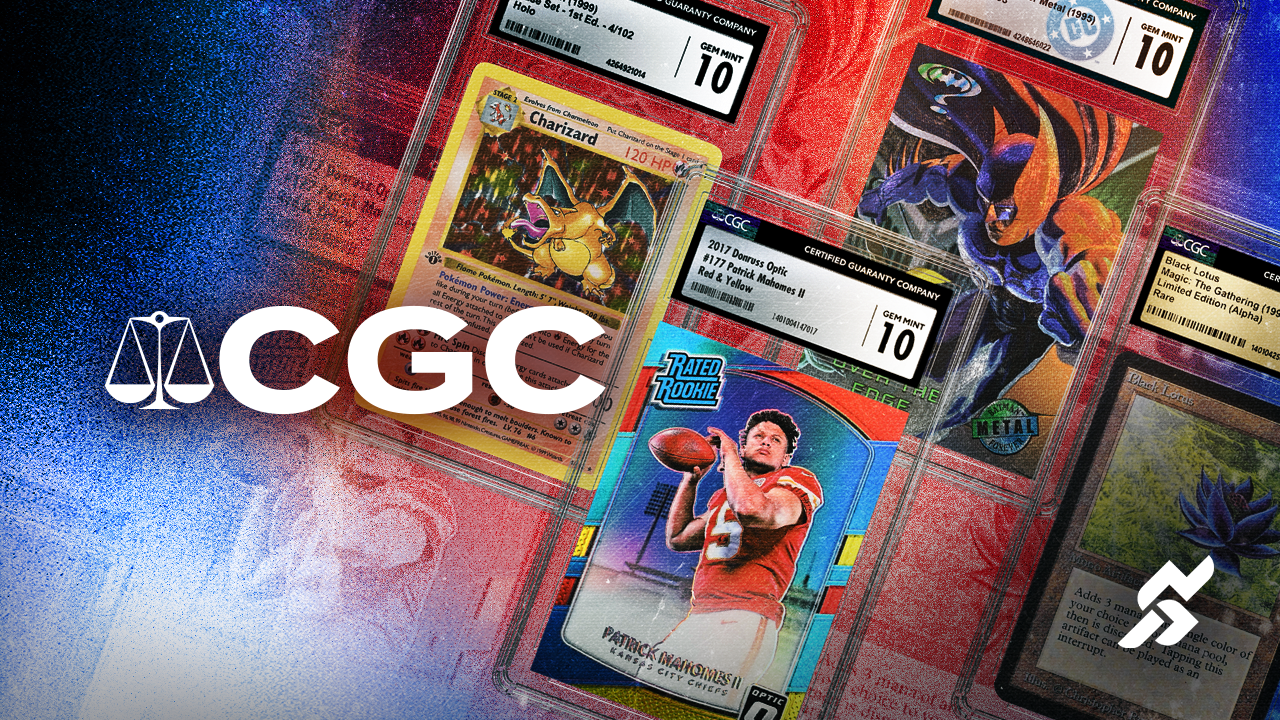
In the world of sports card grading, the billionaire-owned PSA is ubiquitous. It’s the market share leader in card grading, and in the past year, it inked high-profile partnerships with eBay and GameStop, helping the company tally more than 80 million graded items in its 34-year history.
But business history shows that an industry rarely can be dominated by one participant for very long. And in sports card grading, another deep-pocketed challenger is emerging. Certified Collectibles Group, which got its start authenticating collectible coins in the late 1980s, is seeing its young sports card grading business boom.
CGC Cards operates under the Certified Guaranty Company (CGC) subsidiary owned by Certified Collectibles Group; CGC grades pop culture-related items. Sports card grading by CGC Cards is up 631% in the first half of 2025 compared to the year prior, with June setting a monthly record for the business with 570,000 cards graded.
“I am very confident the second half of this year will be bigger for us than the first half,” Certified Collectibles Group president Max Spiegel said on a video call. “We’re owned by Blackstone, we’re well capitalized, we have the financial backing to stand behind everything we’re doing.”
Blackstone acquired the majority of Certified Collectibles in 2021 in a deal valuing the business at $500 million. The deal included personal investment by Fanatics founder Michael Rubin, Jay-Z’s Roc Nation and five other sports and private equity figures. The purchase came just four months after Mets owner Steve Cohen, hedge fund manager Dan Sundheim and venture capitalist Nat Turner paid $853 million for PSA’s parent, Collectors Universe.
While Certified Collectibles Group long ago expanded beyond coins to be well-known in comic books, magazines and trading card games, sports card grading had only just started at Certified Collectibles when the Blackstone syndicate bought the company. But Certified Collectibles knew with the private equity behemoth behind it, it had a chance to take advantage of what it perceived as a weakness in PSA’s business.
“The whole reason we got into this space is back when Collectors Universe was a publicly traded company they kept saying they had a backlog, a bigger and bigger backlog, boasting about this backlog,” Spiegel said. “That’s not something you should boast about. Collectors hate backlogs, dealers hate backlogs. We said, we could get into this space, build a highly scaled company that could do it faster.”
In the four years since CGC Cards began grading sports cards, the business has amassed 7% market share—and it appears to be rising quickly. In June, PSA graded 1.43 million cards, up 24% from the same month in 2024, while CGC Cards placed second at 428,000, up 14%, according to data from GemRate.com, which tracks the card grading industry. In third was SGC, which was bought by PSA’s parent last year, which graded 158,000 cards, followed by Beckett, with 63,000 cards. Spiegel estimates CGC Cards probably will put its number on 4.5 million sports cards this year.
“We’re a faster, more affordable option,” he said. CGC Cards’ website lists pricing starting at $17 for one card valued up to $1,000, with a 30-day turnaround time; it rises to a max cost of $2,500 for the most valuable cards, with a grading turnaround time for the priciest cards of two days. PSA starts at $24.99 for the same entry-level tier for a single card, with a 45-day turnaround, and goes up to $9,999 for cards worth $250,001 to $350,000, with additional fees of $399 per $10,000 of value above that level. PSA’s turnaround time for top level cards is five days, according to its website. Grading that Honus Wagner card you found in the attic will cost more than $100,000 based on the price scale.
But CGC Cards says its edge is more than just price. It has its own retail strategy. Walmart stocks “Gems of the Game,” repackaged unopened packs of sports cards with one CGC-graded card inserted, which sell out almost immediately, Spiegel said. The Fanatics connection helps too.
Last September CGC Cards opened a grading service at Fanatics Collect’s Oregon facility, grading on site to provide seamless flow to cards being sold on the Fanatics Collect website. “We offer an extremely fast turnaround time… which is super compelling because you have a card you want to sell, like of an athlete having a great season, you want to sell pretty quickly,” Spiegel said. Turnaround there can be less than two days, he added.
While the focus is on continuing to expand and market the sports card services CGC Cards offers, Spiegel says expanding into sports memorabilia isn’t out of the question. Last year, autograph specialist James Spence Authentication was bought by Certified Collectibles.
“PSA is well established, they’re going to get a significant portion of the business,” Spiegel said. “But the market really wants a Coke and a Pepsi, they want an option to PSA. There’s a long gap between us and them, but I think over time, given our ability to executive, we’ll close that gap.”

